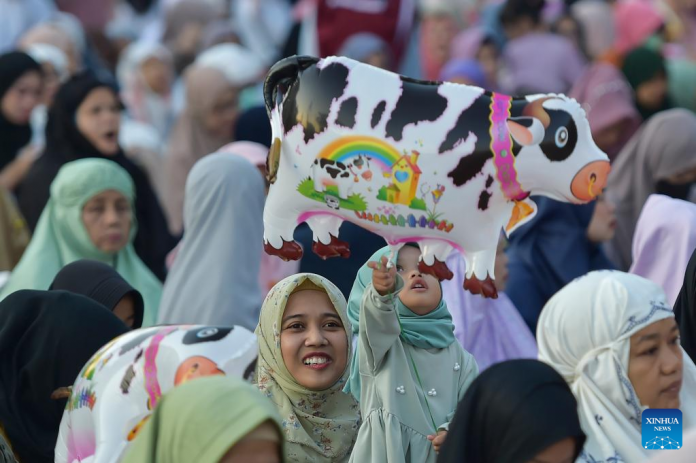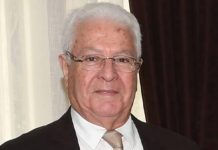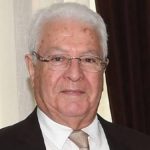Interview with His Excellency, the Ambassador of the Republic of Indonesia to Algeria, Mr. Chalief Akbar Tjandraningrat on Eid al Adha’s traditions and customs in Indonesia.
ALGIERS- His Excellency, the Ambassador of the Republic of Indonesia to Algeria, Mr. Chalief Akbar Tjandraningrat gave an interview to DZ Breaking on Eid al-Adha’s traditions in Indonesia. Eid al-Adha (Feast of Sacrifice or Greater Eid) is an important Islamic religious festival that is observed by Muslims world-wide for its higher dosage of holiness.
This is one of the two Eid festivals that are celebrated by Muslims, namely; Eid ul-Fitr ( Lesser Eid ) that marks the end of Ramadan as well as Eid ul Kbir ( Eid Al Adha). This latter marks the end of the Hajj, in which millions of Muslims from around the world make the pilgrimage to Mecca and reflect upon the sacrifice and commitment to Allah made by Prophet Abraham who intended to sacrifice his son in obedience to Allah. It is a celebration of gift giving, charity, and fellowship. It comes about 70 days after Eid Al-Fitr as it starts on day 10 of Dhu-Al-Hijja, the twelfth month of the Islamic Hijri calendar, and ends on the 13th.
Muslims differ in the way they prepare for and celebrate Eid al Adha. Most people, however, make it an occasion of family unity, service to society and supporting one another. Today, we will take a look into the traditions of Eid al-Adha (Feast of Sacrifice) in Indonesia.
His Excellency, the Ambassador of the Republic of Indonesia to Algeria, Mr. Chalief Akbar Tjandraningrat will shed light on Indonesian customs on this day. To this end, you, dear readers, will embark on a special journey of Eid Al Adha celebrations in Indonesia.
• First of all, welcome to this interview. It is a pure pleasure meeting you.
• Thank you. It’s really a great honor to be with you today.
1- Pure pleasure Your Excellency. We would like to seize the opportunity to extend to Your Excellency, Indonesian people and the Muslims everywhere our warm wishes and special greetings on the auspicious occasion of the blessed Eid Al-Adha. May Allah grant you all health and well-being and bless us with stability and security. Indonesia, a country of plural identities, civilizational links, and cultural depths, is known for past customs that have been practiced for generations to celebrate Eid al Adha, how do the brotherly Indonesian people get ready for the celebration ?
• Well first, again, let me thank you for the opportunity to shed light on Eid Al Adha’s customs in Indonesia.
At the outset, I would like to offer my best wishes with the advent of Eid-al-Adha. So, on behalf of the Indonesian people and the Indonesian diplomatic Mission here in Algiers, I would like to extend my warmest wishes to the people of the sisterly Algeria as well as all Muslims for a happy Eid al-Adha and to congratulate all those performing Hajj.
Eid Al-Adha celebrates Muslims’ devotion to Allah Almighty and underscores the importance of sacrifice, family, and compassion for those less fortunate, as well as the cardinal values that our great religions share.
On the tenth of the month of Dhu al-Hijjah every year, Muslims all around the globe hit a date with one of the most important religious rituals in Islam. This is Eid al-Adha, Eid Qurbani or Hari Raya Haji or Bakr-id; the ‘Feast of Sacrifice’ that is determined by a lunar calendar, like other Islamic celebrations. During the feast, Indonesians as all Muslims worldwide re-enact Ibrahim’s obedience by sacrificing an animal, including cattle, camels, sheep and other livestock and offer votive food to the poor and their fellow Muslims.
There are a number of age-honored traditions and practices related to Eid al-Adha in Indonesia that is made up of up to 300 million people with 300 ethnic groups calling Indonesia home. Although there are many similarities among these celebrations in the Muslim world, each country and culture has its own unique traditions and delicious delicacies for the occasion. Indonesian people start preparations many days before the holiday.
One week before the feast, farmers put their sacrificial animals up for sale, leading to a bustling economic movement. Indonesians can also entrust the purchasing, slaughtering, and distribution process of the animals to the alms agency. Streets become overcrowded; the spirit is quite similar to that of Eid al Fitr. People buy new clothes, accessories for themselves, their families as well as their religious brothers who are poor and less fortunate. Besides, they prepare sweets to please children. For women, setting up the house to receive guests during Eid and absorb the great atmosphere of this occasion – a tradition for decades – is a must. Before Eid, women take the responsibility of cleaning the house.
Families start counting off the days in anticipation of the arrival of Eid El Adha, awaiting the reunification with their loved ones under one roof to create new memories every year! Furthermore, Indonesians observe religious practices that include the Sunnah to fast on the first nine days of Dhul-Hijjah, especially the Day of Arafat.
2- How is Eid celebrated in sisterly Indonesia?
• On the day of Eid, a Muslim is recommended to have a shower before going to the Eid Prayer and wear the best of his or her clothes. This reflects Islam’s care for cleanliness and beauty. A Muslim should be careful regarding his or her appearance, dress, and personal hygiene. For clothes, some would wear clothes from their culture, while others would pick out something new to wear. For women, indonesian kaftans, Abayas, and Baju kurung or Malay women’s blouse are highly appreciated, whereas Indonesian men opt for Kamis or Baju koko, also known as baju takwa, a traditional Malay-Indonesian men Muslim shirt, worn usually during religious occasions.
To celebrate Eid al-Adha, Muslims in Indonesia, both men and women, go to mosques and unroofed spaces to offer Eid prayer and hear the sermon called a khutbah. It’s a congregational prayer and Sunnah muakkadah, which means that the activity is strongly recommended. It consists of two rak’ ah (praying units) followed by a sermon, which is usually given by the Imam.
In addition, on Eid day, Islam mandates a series of community rites for Muslims to undertake. Muslims are recommended to engage in public takbir or the proclamation of the greatness of God (chants praising Allah) from the dawn of the first day of Eid (10 Dhu-al-Hijja), saying « Allahu Akbar… Allah (God) is the greatest.., Allah is the Greatest, Allah is the Greatest, there is no deity but Allah, Allah is the Greatest, Allah is the Greatest and to Allah goes all praise.” The Takbeer is chanted by Muslims in the masjids (mosques), market-places, and streets, etc as pilgrims in Mecca are also reciting the same Takbeer.
This ibadah (act of worship) connects Muslims spiritually and spreads mercy, peace of mind, tranquility, and happiness. After the prayer, Indonesians exchange greetings saying: “Selamat Hari Raya,” widely interpreted as simply wishing somebody a “happy Eid”.
After the prayer comes the ritual of sacrificing the animal or Qurbani at the slaughterhouse. The sacrificial animal has certain criteria, regarding the age, the health condition and the ownership of the animal. It should be healthy and free of defects and be more than one year old. Besides, it should be slaughtered in the direction of the Qibla.
As the sacrifice is being made, participants recite the name of Allah along with an offering statement and supplication to Allah. The slaughterer says ‘Allahu Akbar’ or “Allah is the Greatest”. This means that -I have not assaulted this animal, but I am slaughtering it in the name of Allah -.
Later, Indoensians feast on the meat of livestock animals that have been sacrificed. The family will eat about a third of the meal, a third goes to friends and relatives, and the remaining third is donated to the poor and needy. This devision is another brilliant example that shows how far the Adha day implants love and care in the Muslims’ hearts for family, relatives, and for the whole society.
Eid al Adha is also marked by family reunions as family members and friends pay visits to each other to share the mouthwatering meat banquet. Women prepare a range of must-try Eid al-Adha dishes and sweets, including, among others, Satay with beef and spices, served with sambal and other side dishes like rice or lontong (rice cake), Tongseng that is a stew dish in a curry-like soup made of mutton or meat, vegetables, and sweet soy sauce, as well as Indonesia’s own version of a classic steak, called bistik.
Children, for their part, seize the opportunity to show-off their new Eid clothes and spend their entire Eid allowances, Eideyas, on buying sweets.
To wrap up, all Muslim Indonesians celebrate Eid in full swing, marking it by shopping sprees, Eid prayer, sacrificing the animals, family reunion, splendid feasts and charities. With such a wide range of unique celebrations, the core of Eid, irrespective to the differences in the customs, is to reflect on the values of sacrifice, service, unity, strengthening family kinship, compassion, charity, and to help those less fortunate. The commemorative events stir the spirit of sacrifice in every Muslim’s consciousness. Eid al Adha creates an atmosphere of joy, happiness and jubilation, and it is an occasion for the hearts to rejoice and for the families to reunite to share nice moments. It is an occasion for Muslims to help the poor and to create more and more solidarity between the people.
• Your Excellency, the Ambassador of the Republic of Indonesia to Algeria, Mr. Chalief Akbar Tjandraningrat, thank you very much, indeed, for your time and my thanks are also due to our readers.
• You are most welcome. I would like to say that the message of Islam is that of peace to all regardless of their religions and we hope for stability, prosperity and security for all people across the globe. As you know, Indonesia is made up of a range of ethnicities, races, religions and languages, however, our motto is Bhinneka Tunggal Ika (“Unity in Diversity”), signifying the unity of the Indonesian people despite their diverse ethnic and cultural backgrounds. Diversity is the fabric of Indonesian society and the country was founded with the indomitable spirit of diversity. Hajj and Eid Mubarak!
Interviewed by: Hana Saada




























